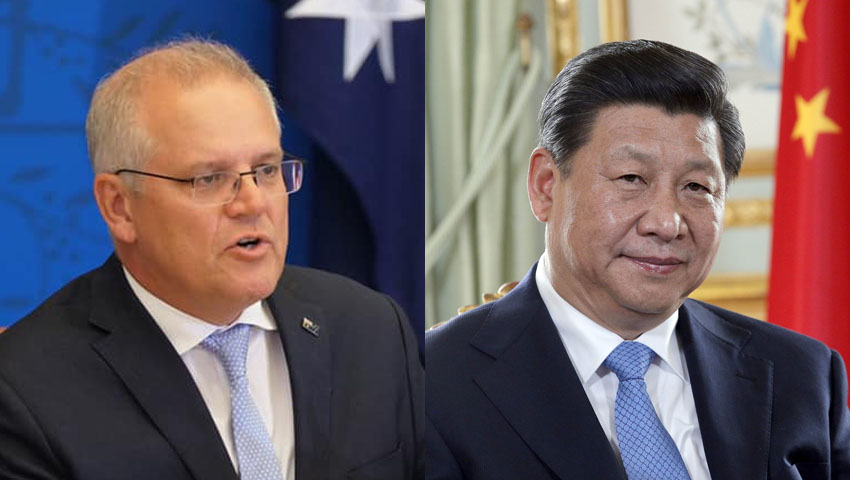Prime Minister Scott Morrison is expected to address the G7 in Cornwall, urging leaders to support a “rules-based order” amid the growing threat of Chinese economic coercion.
To continue reading the rest of this article, please log in.
Create free account to get unlimited news articles and more!
Prime Minister Scott Morison is expected to address the G7 in Cornwall this week, encouraging the leaders of the world’s most advanced liberal democracies to support an international “ruled-based order” in the face of ongoing Chinese economic coercion.
However, this year’s G7 isn’t the typical club. Joining Canada, France, Germany, Italy, Japan, the UK and the US will be the “G7 plus” – with India, South Africa, South Korea and Australia in attendance.
According to ASPI’s Michael Shoebridge this week in The Strategist, the meeting will focus on the ongoing difficulties with China.
“That Quad meeting came out with a lot more than dialogue: it resulted in urgent combined work on COVID-19, climate change and reducing the vulnerability of critical supply chains to coercion. The four Quad leaders will bring this direction and urgency to the G7 — because both Morrison and Modi have been invited to participate, along with South Korea’s Moon Jae-in and South Africa’s Cyril Ramaphosa,” he argues.
Indeed, Shoebridge continues that international attitudes toward China have altered massively over recent years. This is evidenced by the fact that it was only in 2014 that then-PM Tony Abbott signed a free trade agreement with People's Republic of China, and in 2015 when UK prime minister David Cameron invited President Xi Jinping for a state visit and lauded British-Chinese relations. How things have changed.
“The Quad and G7 leaders know that if they don’t work collectively on the China challenge, they will all be coerced separately by Xi’s China and they’ll fail to curb Beijing’s increasingly aggressive international conduct — on trade, territory, security, technology and key values like human rights.”
Our key decision makers have identified that such a multifaceted threat requires a multilateral response.
Key to the Prime Minister’s speech will be the importance of providing support to the World Trade Organization, which is hoped will prove key to supporting Australia's economy by ensuring fair and co-operative global trade through rules of non-discrimination.
Over recent years, Australia and China have traded numerous political and economic barbs, from suggestions that the Chinese government will introduce anti-dumping tariffs on Australian wine valued between 116.2 per cent and 218.4 per cent through to threats and attacks on the Australian beef, barley and lobster industries (to name a few). Simply, the rules based order provided by a friendly World Trade Organization has seldom been more important.
“And it’s why the G7 trade ministers are so focused on re-energising the World Trade Organization’s dispute-resolution machinery and addressing unfair trade practices up to and including use of trade as a weapon against those who displease Xi and the Chinese Communist Party,” Shoebridge said.
“As Biden has put it in the lead-up to the G7, ‘We will focus on ensuring that market democracies, not China or anyone else, write the 21st century rules around trade and technology’.”
Considering the continual economic muscling of democratic and peaceful nations like Australia, President Xi’s comments at this year’s Boao Forum are painfully ironic.
According to the Ministry of Foreign Affairs of the People’s Republic of China, President Xi’s speech read, “What we need in today's world is justice, not hegemony. Big countries should behave in a manner befitting their status and with a greater sense of responsibility.
“We must scale up information sharing and collective efforts, bolster international cooperation on COVID-19 vaccines, take comprehensive measures to improve global governance on public health security and work together for a global community of health for all. We need to advance international co-operation on climate change.
"We must advocate peace, development, equity, justice, democracy and freedom, which are common values of humanity, and encourage exchanges and mutual learning among civilisations."
Ironic.
Prior to the G7 plus conference, PM Morrison is due to meet Singaporean Prime Minister Lee Hsien Loong where it is expected that the two leaders will discuss ongoing changes in the Indo-Pacific amid US and Chinese competition.
Will the G7 stand up for democracy?
Get involved with the discussion and let us know your thoughts on Australia's future role and position in the Indo-Pacific region and what you would like to see from Australia's political leaders in terms of partisan and bipartisan agenda setting in the comments section below, or get in touch with

 Login
Login







